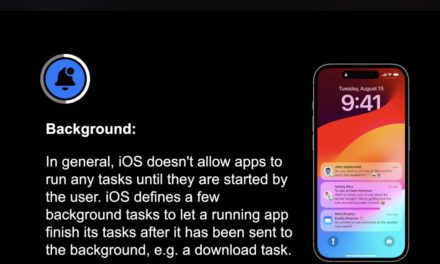Apple partner Globalstar hints in a FCC filing that more satellite-powered features are coming to iPhones, according to PCMag.
The article notes that Globalstar objects to T-Mobile asserting in a previous filing that “today’s ubiquitous consumer devices will not support reception of MSS (mobile satellite service) signals.” In fact, Apple and Globalstar have already been providing satellite connectivity to the latest iPhones through an Emergency SOS feature, the FCC filing says.
“Globalstar’s MSS (mobile satellite service) system will continue to evolve over time to support a growing array of direct-to-handset features and services in its licensed spectrum,” it adds in the filing.
PCMag says the statement suggests Globalstar—which already offers satellites phones—is working to bring satellite-based voice calls and internet to Apple devices. Although the company is already providing satellite connectivity to the iPhone 14, the system currently only allows people to send text messages to emergency services when traditional cellular services are out of reach.
Apple has invested early half a billion dollars into its satellite communications partner Globalstar. In February it was announced that the tech giant is giving Globalstar an US$252 million investment comes in the form of a loan, according to 9to5Mac.
A September 2022 SEC filing from Globalstar revealed that Apple plans to use 85% of its current and future network capacity for its services to iPhone 14 consumers, and pay for future satellite upgrades. All the new iPhones pack a new feature called Emergency SOS via Satellite.
The feature combines custom components deeply integrated with software to allow antennas to connect directly to a satellite, enabling messaging with emergency services when outside of cellular or Wi-Fi coverage. Apple says that aatellites are moving targets with low bandwidth, and it can take minutes for messages to get through. Since every second counts, with Emergency SOS via satellite, iPhone front-loads a few vital questions to assess the user’s situation, and shows them where to point their phone to connect to a satellite.
The initial questionnaire and follow-up messages are then relayed to centers staffed by Apple‑trained specialists who can call for help on the user’s behalf. This technology also allows users to manually share their location over satellite with Find My when there is no cellular or Wi-Fi connection. Emergency SOS will be free for two years.
Apple will use Globalstar satellites for Emergency SOS via Satellite. The company already uses the satellite network for its location-tracking feature known as Find My. Apparently, Apple’s loan to Globalstar is to keep the company afloat during the two year that Emergency SOS is provided for free.
Article provided with permission from AppleWorld.Today




